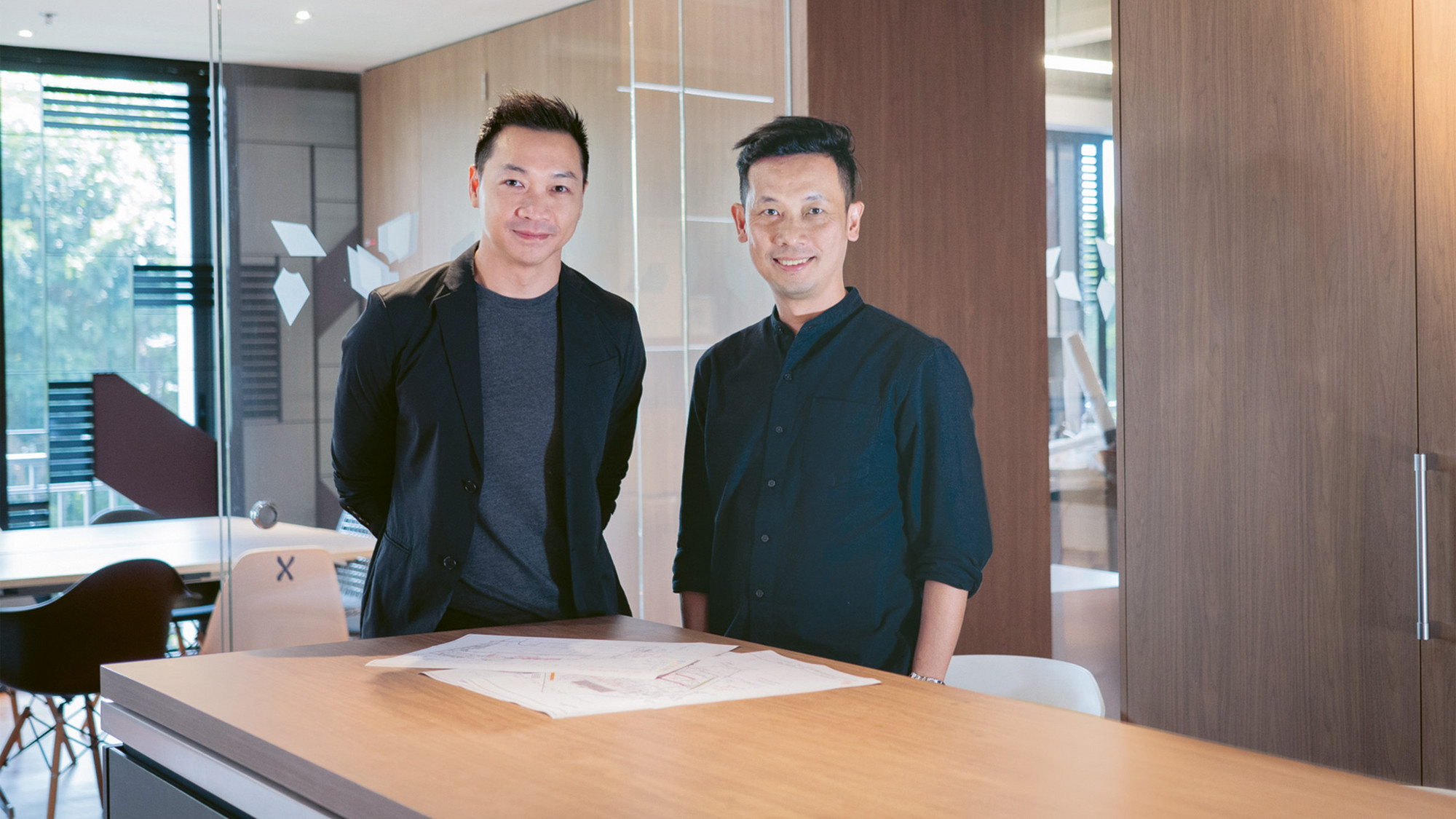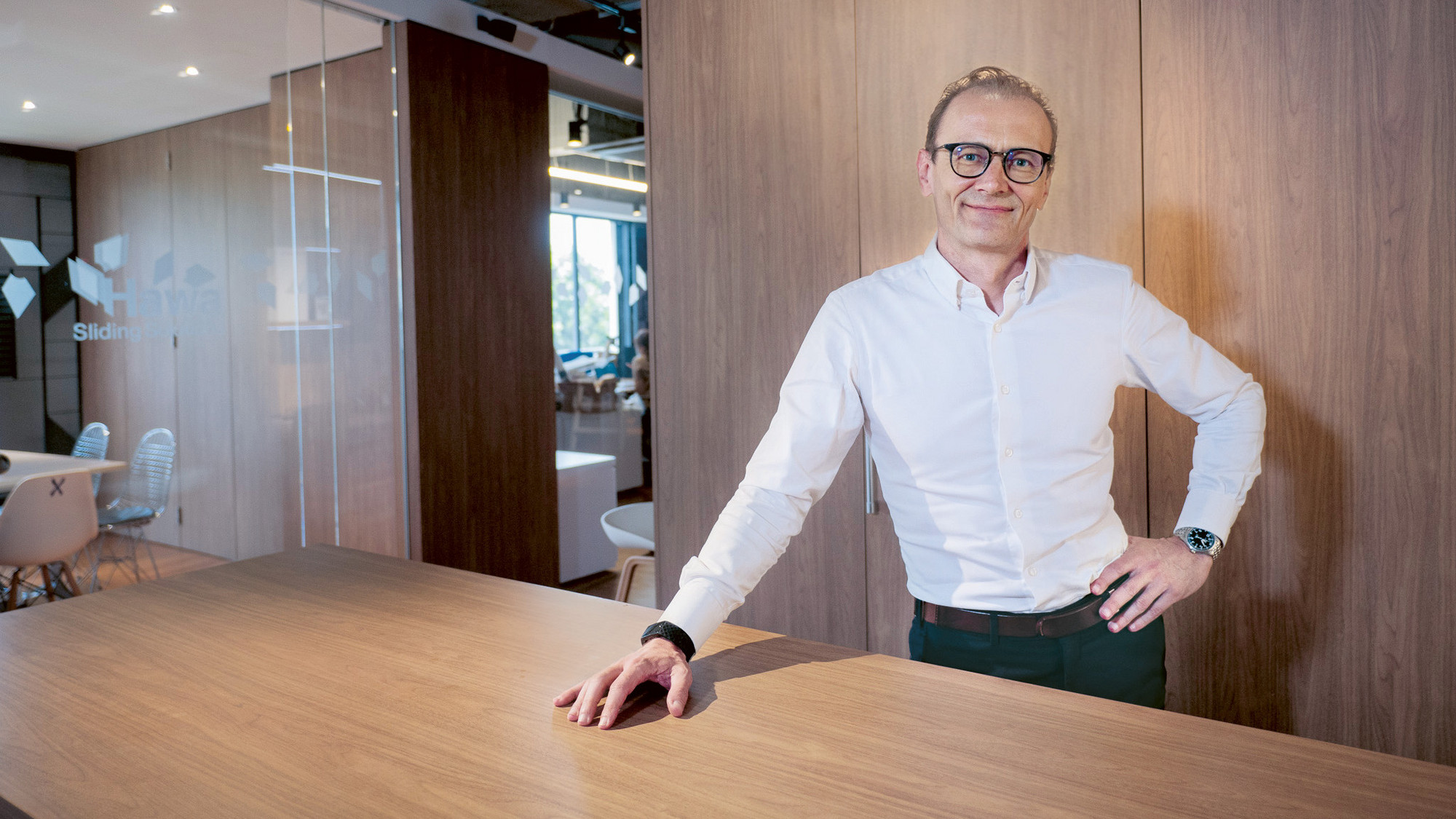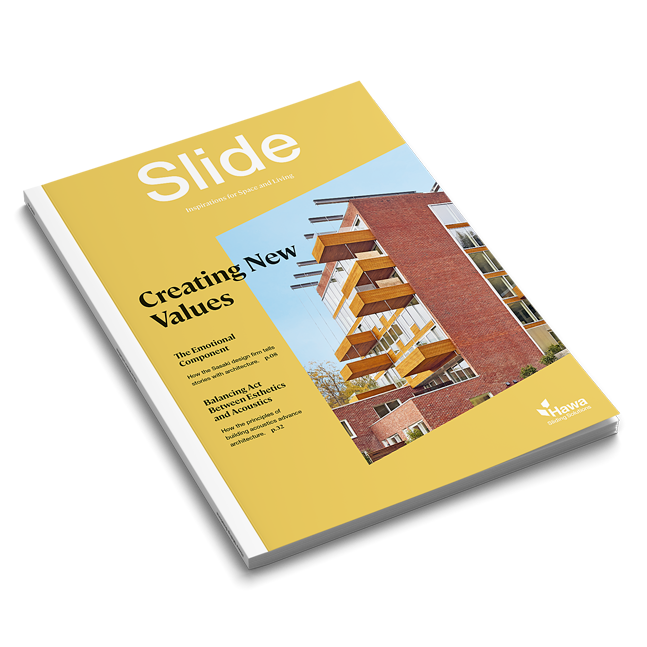
Price Pressure Versus Good Design
Author: Stephan Lehmann-Maldonado
Photography: evye, Michael Ryan Chan
Singaporeans value a home with style. What does this mean for product selection during construction? Henry Yew, director of Index Design, Peeradet Kangsadalkuns, design director of PAI Studio, and Stefano Mattioli, managing director of Hawa Sliding Solutions Asia Pacific, give us their views.
What do Singaporeans value most when it comes to housing and construction?
Henry Yew: Real estate in Singapore is very expensive. Even a small condo in the outskirts can often cost upward of a million Singapore dollars (equivalent to about US$740,000). This makes Singaporeans very choosy. Many have worked their whole lives to be able to afford a home of their own. As they also like to travel, they know about construction quality in other countries, such as Japan and Europe. And we expect a standard at home that is at least as good, or better. Developers whom we work closely with always pay very close attention to such detail.
To what extent has the Covid 19 pandemic changed the market?
Henry: It has heightened the importance of quality even further. People are demanding more comfort from their homes. Many building contractors and homeowners are asking us: ‘How can I make my space flexible?’ For example, they have a studio that they also want to use as a quiet office suitable for online business meetings. In every project we have to surprise our customers with smart solutions. When we plan a studio apartment, we want it to stand out from the market. One way to do this is by enabling flexible use of space. We use doors and other features to play with transitions and separations in an optimal way.
“Hawa Sliding Solutions systems give us incredible design freedom.”
Peeradet Kangsadalkuns: In the wake of Covid-19, everyone is talking about the blurring of the boundaries between life and work. But, for designers, the idea of sliding doors and flexible spaces is not new. They have been in use in interior design since the 1960s. But back then, the time wasn’t yet ripe for today’s lifestyle. Now it’s different: People share their lives and homes with the world on Facebook and Instagram. At the same time, there is a need for places of refuge and privacy, as we may not want our colleagues to see and hear our children playing in the background while we are in a Zoom meeting.
Stefano Mattioli: In other countries, people can say: ‘I’m moving to the countryside, I can afford more space there.’ We can see this phenomenon in Australia and the United Kingdom, for example, where real estate prices in cities have skyrocketed. But Singapore is a city-state. Even if you move out to the suburb of Jurong you won’t find affordable space.

The price pressure is there: what are investors and builders willing to spend money on?
Peeradet: As designers, we need to stay on top of the budget. We use Hawa Sliding Solutions premium products where they add the most value. For example, in hotels, that means in places where guests see them and appreciate them, such as between the lounge and the bedroom of a suite. Whereas Hawa systems may not be strictly necessary in rarely used storerooms. When planning a home in a mild climate zone like ours, we can use sliding glass walls to link indoor and outdoor spaces. For this application, we recommend Hawa systems that can be pushed completely to one side, turning the balcony or terrace into an extension of the living area.
“We use Hawa solutions where they add the most value.”
Stefano: In fact, with a conventional sliding system, it is not usually possible to have an unrestricted view of the terrace and really open the room up completely.
How do you justify the product choice to the customer?
Peeradet: We explain to customers that they will get superior quality.
Henry: It’s our duty to inform customers transparently. Our reasoning is always that our priorities are based on the customer’s needs and budget. Frequently used areas, such as closet doors, need to be of the highest quality, as they wear out quickly. If our customers want to save on expense at this stage, we have to point out to them that this may lead to problems later on. People who opt for supposedly cheaper variants instead of Hawa’s premium products often end up annoyed just a couple of years later. By then, the rails and fittings are often broken. Do you really want to give up your precious time to arrange a replacement and spend money on it again? ‘Cheap’ alternatives can turn out to be expensive.
“Cheap alternatives can turn out to be expensive in the long run”
What does it mean for the design if customers reject your product proposal?
Henry: If the customer has clear constraints, we have to respect them. But even in this case, we consider it our duty to test the products. From a designer’s perspective, it doesn’t matter to us whether the product comes from China or Switzerland. What’s important is that it passes our tests.
Peeradet: Hawa Sliding Solutions systems give us incredible design freedom. They allow us to design all kinds of ‘magical’ openings. But sometimes we are forced to change our designs when customers don’t want to go along with our product suggestions. Maybe we have to do without a sliding door using Hawa hardware for a closet, so have to use conventional folding doors.
Where is the price pain threshold when it comes to sliding solutions?
Peeradet: Surprisingly, it’s pretty high. Many companies tell us about the positive experiences they have had with Hawa solutions.
How does Hawa add value to the creative process?
Henry: Many suppliers are very much focused on sales. Hawa, on the other hand, is very design-oriented. We like to visit the Hawa Experience Center in Singapore and take a look around. Then we usually talk about design first–and only later about product and prices. If we want to achieve something special, Hawa is open to it.
Stefano: We are happy when people come to us with an idea. Sometimes we say: ‘You can’t do that with the product you’ve chosen. But we have other solutions that can be used to achieve the desired effect.’ We forge a path together until we arrive at a solution that everyone is enthusiastic about.
Between top designers
Henry Yew won first prize in an art competition at the age of five. Today he is a partner of PAI Studio and a director of the group’s parent company, Index Design. He visited Hawa Sliding Solutions together with Peeradet Kangsadalkuns, design director of PAI Studio. They both appreciate the dialog with Stefano Mattioli, Managing Director Sales Asia Pacific of Hawa Sliding Solutions.
You can also find the article «Price Pressure Versus Good Design» in our Slide #4. In this issue of the magazine, you will also learn more about the balancing act between aesthetics and acoustics, and we will take you along with us when a barrier-free apartment is planned in Switzerland.
Order the magazine free of charge to your home or download it directly.
